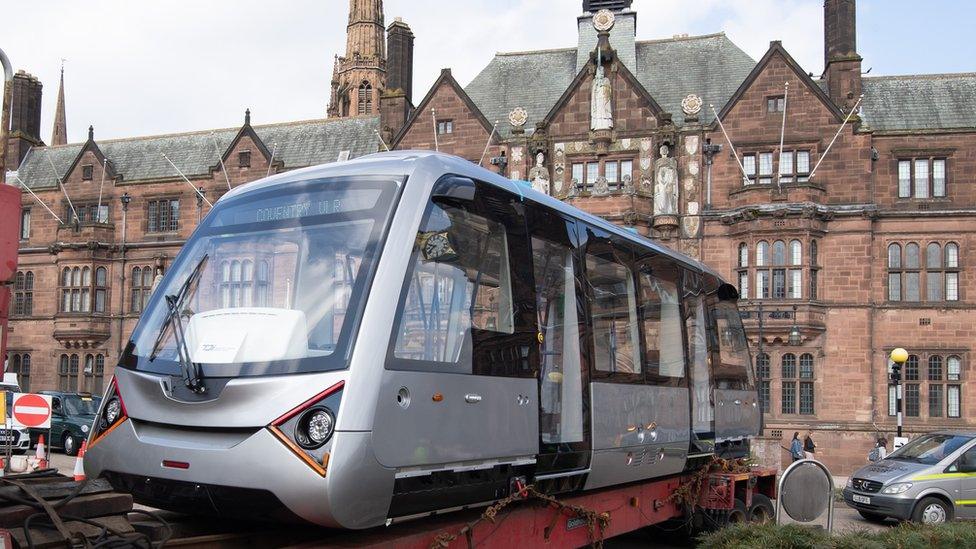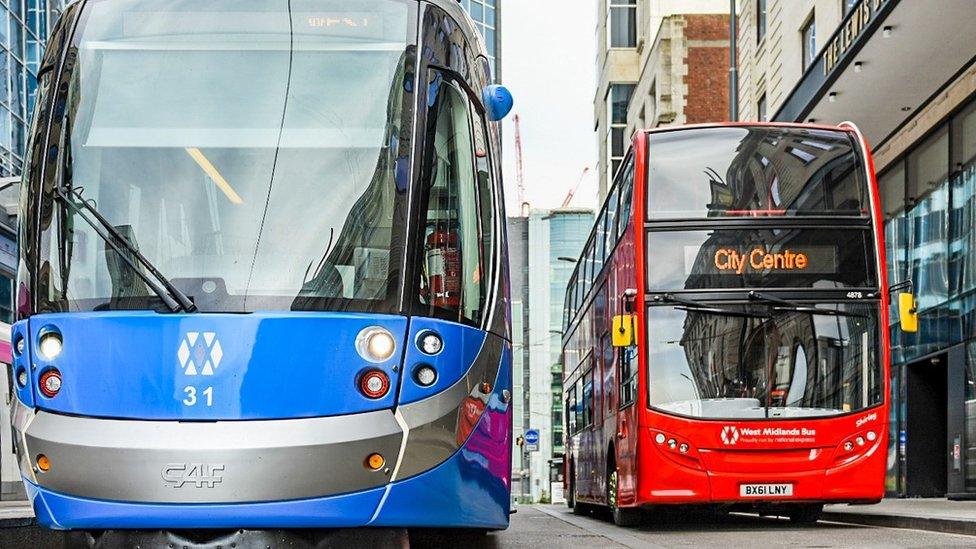Coventry's 'very light' railway to be UK first
- Published

Plans for a light railway were first put forward in 2018
Coventry is to become home to the UK's first "very light" rail line as part of a £1.3bn travel plan.
The line is among 50 transport projects agreed by the West Midlands Combined Authority (WMCA).
They also include cycle routes, bus lanes and a new railway station at Aldridge in Walsall borough.
The list of preferred schemes is to be submitted to the Department for Transport for final approval, after which the full list will be published.
Plans for the light railway were first put forward in 2018 ahead of Coventry becoming the 2021 UK City of Culture.
Investment would also continue in the existing Metro system, the authority said, with funding to be set aside to develop the business case for its extension along Hagley Road, Birmingham, as well as the expansion of the tram depot in Wednesbury.

Plans also include cycle routes, bus lanes and a new railway station at Aldridge
The schemes, to be developed over the next five years, will be funded from the £1.05bn City Region Sustainable Transport Settlement, which was awarded to the region by the Department for Transport last year, topped up with local funding.
The authority said it prioritised schemes that promoted "the decarbonisation of transport" and target investment into areas of poor connectivity, in line with policies outlined in the region's draft local transport plan which was also approved by the WMCA Board on Friday.
Andy Street, mayor of the West Midlands and chair of the WMCA, said: "This unprecedented investment will allow us to deliver more than 50 exciting projects as we continue to revolutionise and de-carbonise public transport across the West Midlands.
"I know the team cannot wait to get started on these projects, and so once we have government approval we will press on with getting diggers in the ground and people into work."

Follow BBC West Midlands on Facebook, external, Twitter, external and Instagram, external. Send your story ideas to: newsonline.westmidlands@bbc.co.uk, external
Related topics
- Published19 January 2018
